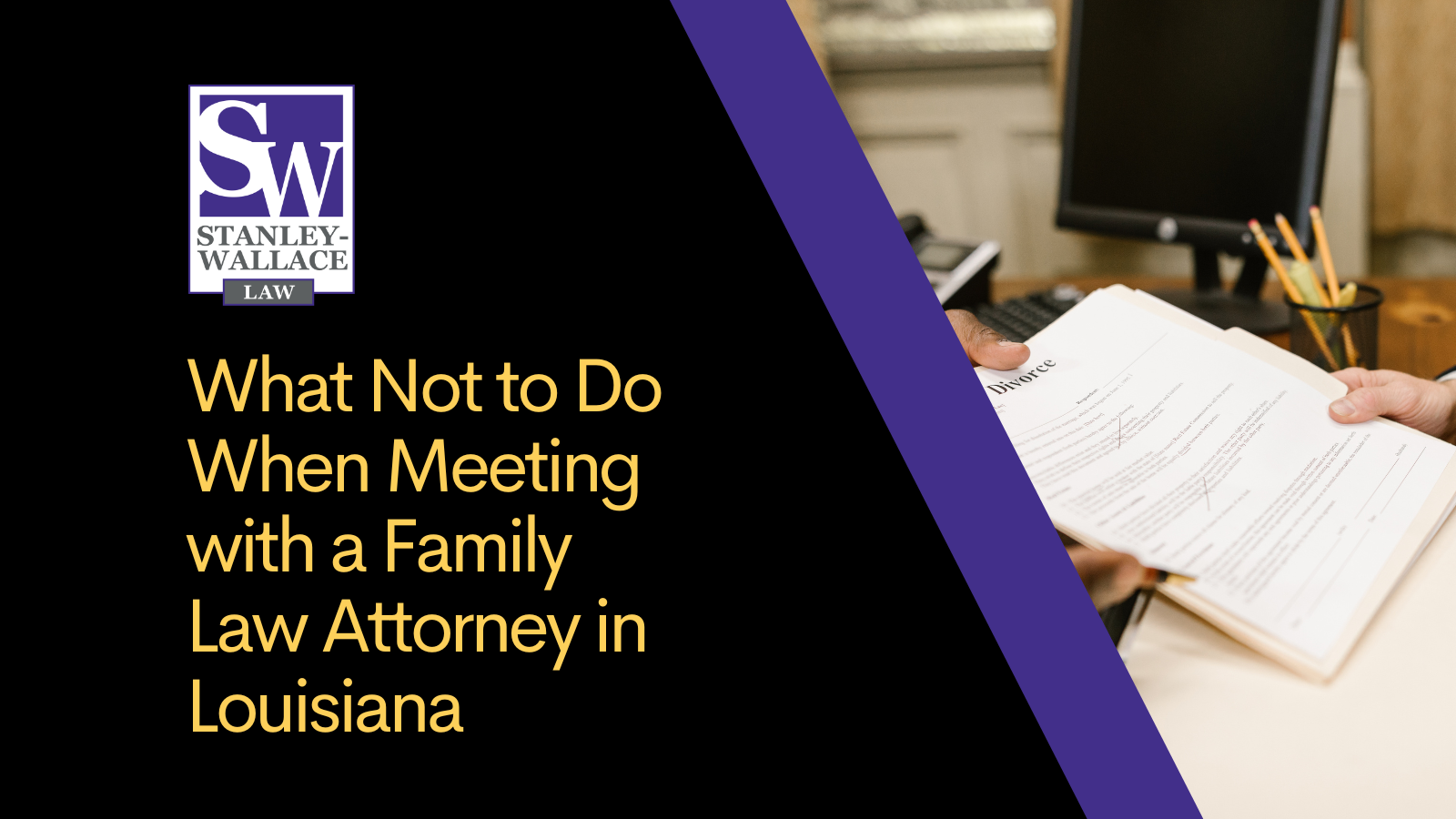Navigating family law matters can be emotionally challenging, and choosing the right attorney is a critical step in the process. If you’re in Louisiana and seeking legal representation, it’s essential to approach your initial meeting with care. Here are some pitfalls to avoid to ensure your attorney considers taking your case seriously.
1. Don’t Be Unprepared
Failing to Gather Documentation
Come to your meeting with all relevant documents, such as financial records, custody agreements, and any previous court filings. Lack of preparation can suggest disorganization or a lack of seriousness about your case.
Ignoring Your Goals
Be clear about what you want to achieve. Whether it’s child custody, divorce settlement, or another family matter, having specific goals helps the attorney understand your needs.
2. Don’t Be Dishonest
Omitting Key Facts
It may be tempting to downplay certain details, especially if they seem unfavorable. However, honesty is crucial. Attorneys need a complete picture to assess your case accurately and provide sound legal advice.
Misrepresenting Your Situation
Exaggerating or misrepresenting facts can severely damage your credibility and the attorney’s ability to advocate for you. Trust is the foundation of a good attorney-client relationship.
3. Don’t Focus Solely on Cost
Neglecting the Value of Expertise
While it’s essential to understand the costs involved, fixating on the lowest fees can be detrimental. Quality representation often comes at a price, and choosing an attorney based solely on cost might compromise the quality of your legal support.
Not Asking About Ways to Decrease Your Costs
Experienced family law attorneys know the ways to save money for their client and the items that drive the cost sky high. Inquire about ways to decrease the cost of your family law case – you might be surprised.
4. Don’t Dismiss Their Expertise
Ignoring Legal Advice
Your attorney is there to guide you through the complexities of family law. If they offer advice or suggest a particular course of action, take it seriously. Dismissing their professional insight can signal a lack of respect for their expertise.
Questioning Their Strategy During the First Meeting
While it’s important to ask questions, overtly questioning their strategy before they’ve had a chance to fully evaluate your case may come across as combative rather than collaborative.
5. Don’t Share Unnecessary Details
Overloading with Irrelevant Information
Stick to the facts that pertain directly to your case. Sharing extraneous personal details can cloud the meeting and detract from the critical issues at hand. Focus on what matters.
Bringing Up Past Grievances Without Context
While it’s essential to provide background, avoid turning your meeting into a session to air grievances or emotions. Keep the conversation focused and constructive.
6. Don’t Underestimate the Importance of Chemistry
Ignoring Personal Rapport
Your attorney will be a key ally during a challenging time, so personal rapport matters. If you don’t feel comfortable or understood, it may be worth considering other options.
Forcing a Connection
However, don’t force a relationship where there isn’t one. It’s better to find an attorney with whom you naturally connect, rather than feeling pressured to stick with someone who doesn’t resonate with you.
Conclusion
Meeting with a family law attorney is an important step in addressing your legal needs. By avoiding these common pitfalls, you can help ensure that your attorney takes your case seriously and can provide the best possible representation. Be prepared, be honest, and focus on establishing a collaborative relationship to navigate your family law issues successfully.


